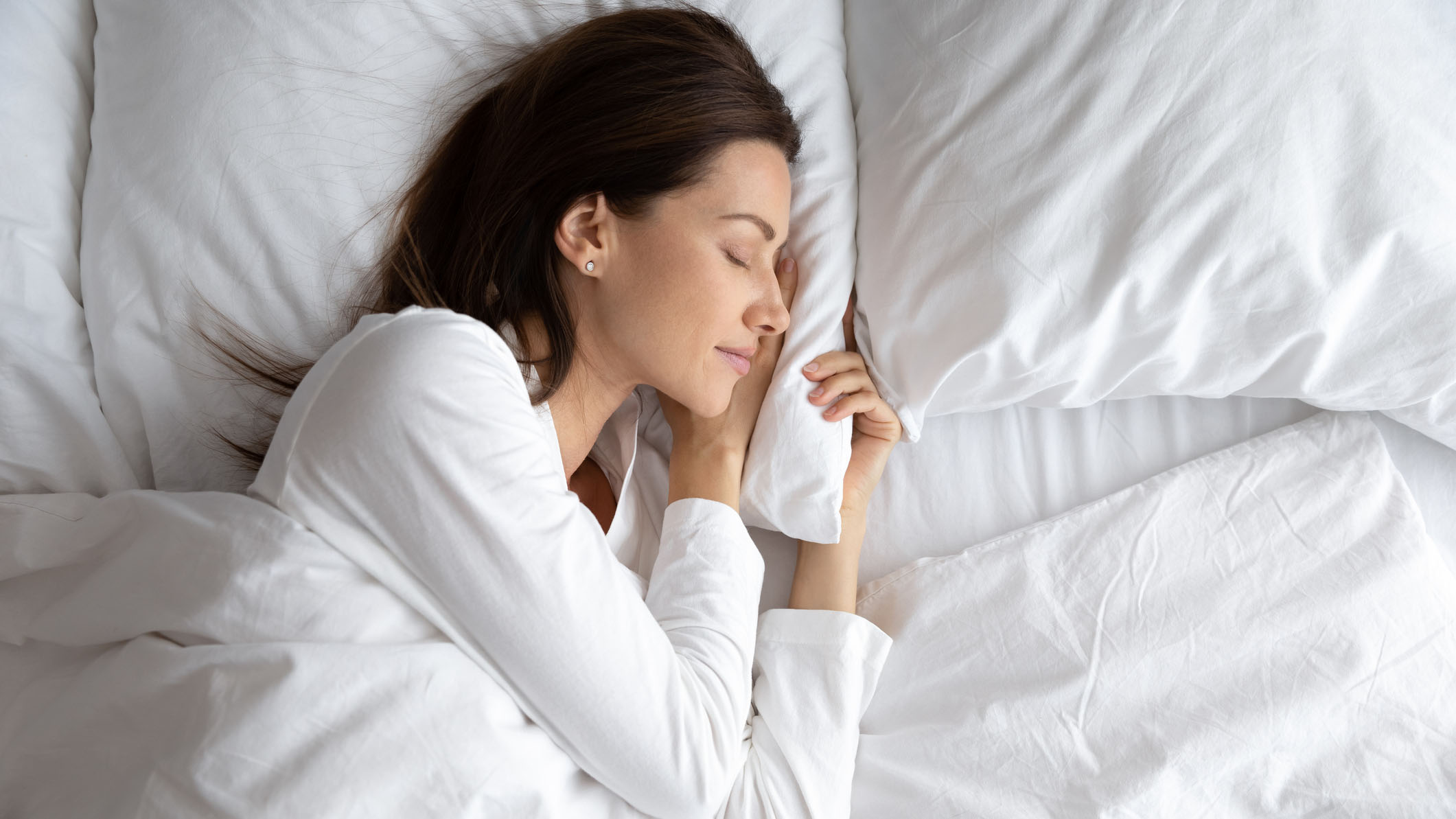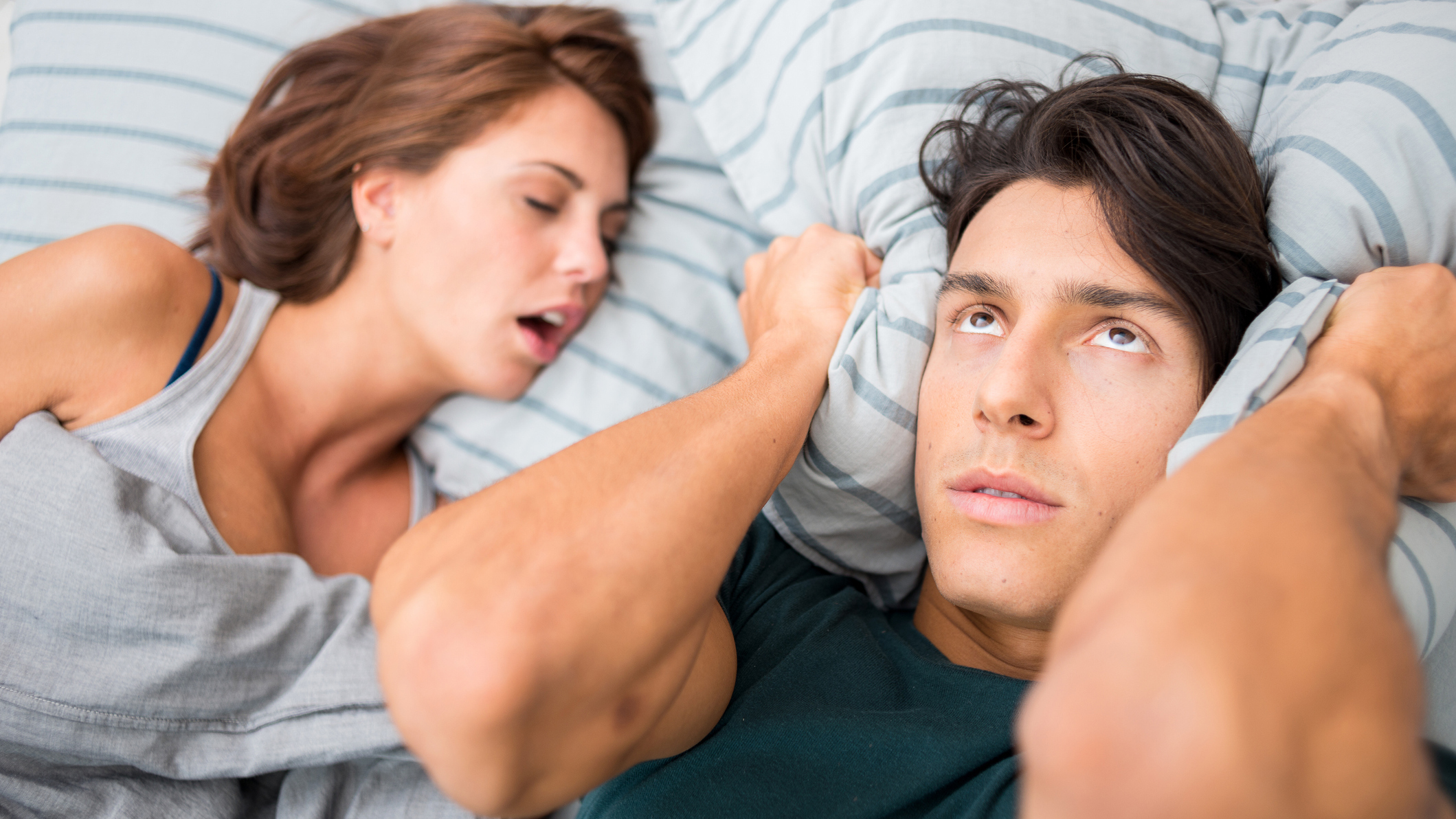Not everyone should sleep on their left side — leading sleep doctor explains why
Think left is best? It is for most of us, but there's one exception...

If you sleep on your side, you’re definitely not alone. A 2019 study by Curtin University revealed that 60% of people habitually sleep on their sides. But which side should you sleep on: left or right? And is there a better side for sleep if you're pregnant, have acid reflux or other digestion issues, or you snore?
To get answers, we spoke with Dr Michael Breus (MD, FAASM), world-renowned sleep expert and the founder of The Sleep Doctor. As Dr Breus explains, sleeping on your left comes with its own pros and cons as does sleeping on your right side, but there is generally one side that most of us should sleep on for better health.
Whether you sleep on your left or right, it’s important to invest in the best mattress for your body and sleep position, as an uncomfortable bed will quickly derail your sleep at night. For now, here's Dr Breus's take on which side you should sleep on...
- Rise and shine with the best iPhone alarms according to science
- How to choose a mattress for your sleep position
Should you sleep on your left side?
Sleeping on your left side comes with lots of benefits, including easing heartburn and indigestion. That's because your digestive systems operate from right to left. “The large intestine wraps across our abdomen, from our right side to our left, and that is the direction food would go to get absorbed by the lower intestine," explains Dr Breus. “Sleeping on the left facilitates this movement, helping food to be digested more efficiently, basically due to gravity.”
Another positive of sleeping on your left side is the potential to reduce snoring or sleep apnea. While sleeping on either side alleviates snoring and sleep apnea better than back and stomach sleeping, Dr Breus, reveals that left-side sleeping can be even more effective — and it’s all to do with the tongue. “By sleeping on one side it forces the tongue to fall forward, “ he says. “Not backward, avoiding sleep apnea."

According to The Sleep Doctor, the final reason you should sleep on your left side is one you may not have heard before: sleeping on your left side helps reduce Alzheimer's. Dr Breus explains that the glymphatic system (or “the brain’s waste management system”) is most active when we’re at a certain stage of sleep.
“During stage 3/4 of sleep the glymphatic system goes in and scoops out proteins that are harmful.” While Dr Beus says the reason is unknown, research has shown that this entire system works better when you sleep on your left side.
Get instant access to breaking news, the hottest reviews, great deals and helpful tips.
So to recap, the benefits of sleeping on your left side include:
- Better digestion
- Reduction in acid reflux
- Reduction in snoring
- Reduction in sleep apnea
- Lower risk of Alzheimer's
- Better circulation during pregnancy
Should you sleep on your right side?
So we’ve seen that sleeping on your left hand side has a tonne of benefits, but what about sleeping on your right side? “I think this is really more for people with heart conditions,” reveals Dr Breus. ”Studies show that many people with heart failure naturally choose to sleep on their right side and avoid sleeping on the left side.”
He explains that sleeping on the right side can add more comfort when sleeping with heart failure, as shown in a 2018 study. “Echocardiograms of people with heart failure show that left side sleeping impacts the way the heart functions,” says the sleep specialist. “Potentially causing discomfort.”
Can you train yourself to sleep on your side?
While each side comes with its advantages, what happens if the side you naturally choose to sleep on isn’t the side that can alleviate your condition? Is there a way you can train yourself to sleep on the side that suits your condition better” According to Dr Breus, there is a way: “I use ankle and wrist weights with my patients and they seem to work well.”

Frances Daniels is a PPA-accredited journalist and Sleep Staff Writer at Tom's Guide with an MA in Magazine Journalism from Cardiff University. Her role includes covering mattress and sleep news and writing sleep product reviews and buyer's guides, including our Best Hybrid Mattress 2025 guide. She is interested in the relationship between sleep and health, interviewing an array of experts to create in-depth articles about topics such as nutrition, sleep disorders, sleep hygiene, and mattress care. She is also our specialist on mattress toppers — producing bed topper reviews and taking care of our Best Mattress Toppers 2025 guide — and leads content relating to fiberglass-free beds for a non-toxic sleep. Outside of Tom's Guide, she has written for Ideal Home and Marie Claire.
 Club Benefits
Club Benefits





